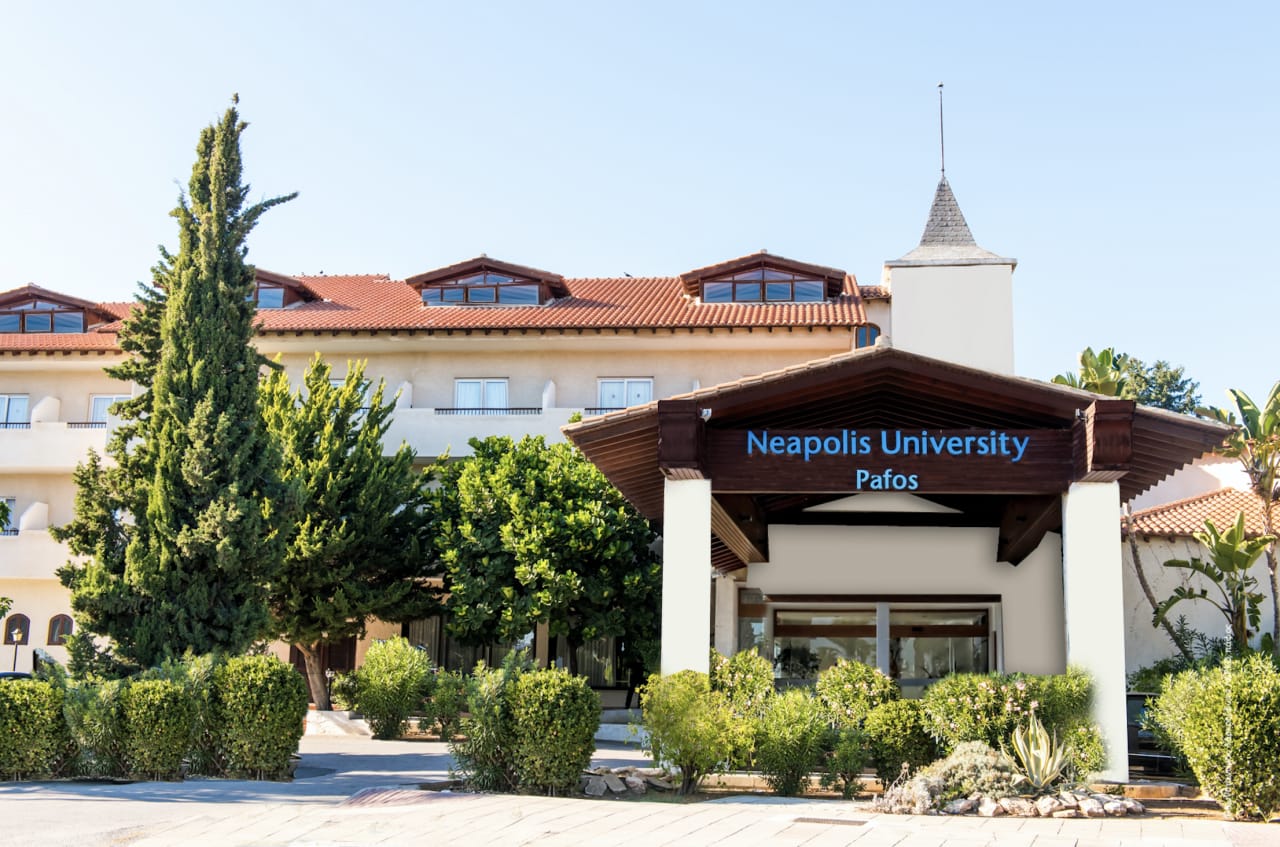
Master of Science in International Relations, Strategy and Security
Neapolis University Pafos

Key Information
Campus location
Paphos, Cyprus
Languages
English,
Study format
On-Campus
Duration
18 months
Pace
Full time
Tuition fees
EUR 12,000 / per year *
Application deadline
Request info
Earliest start date
Request info
* we offer a 40% scholarship, so students pay 7200 euros
Introduction
The MSc in International Relations, Strategy, and Security aims at providing students with a broad assessment of contemporary international relations, with emphasis on strategy and security issues. It combines in-depth academic training in key concepts, theories, and case studies, alongside a structured process of engagement with contemporary debates and experience. It integrates theoretical approaches with the study of many cases and issues. It also explores the ways in which the line between the domestic and international is blurred by trade, financial, environmental, strategic, security, ideological, cultural, and ethical issues. Moreover, the Programme provides a strong theoretical and empirical understanding of the international security environment of the post-Cold War era, including the origins of conflicts and peace, the emergence of new security threats and the many different agencies involved in conflict prevention, peacekeeping and peacemaking today. Last but not least, the Programme identifies the ways state and non-state actors develop strategies in the international environment as far as security issues are concerned.
Graduates of the Programme are expected to have a thorough understanding of international political, security, and strategic issues, which will enable them to pursue careers in the diplomatic corps, in international organisations, in NGOs, as well as in both the public and the private sector as a senior policy and security advisors.
Advantages of the Programme
- The international prestige and recognition of Neapolis University Pafos.
- Excellent academic staff with strong expertise in the taught subjects.
- International collaborations with many Universities.
- The flexibility of distance learning.
- The use of advanced technology and resources.
- The dynamic choice between synchronous and asynchronous distance education.
- The adjustment of the Programme to current academic trends and market requirements.
- Competitive tuition fees.
Admissions
Curriculum
Teaching, Learning and Assessment Methods
The Programme’s teaching methodology involves a combination of lectures, tutorials, seminars, examinations, projects, presentations, assignments, case-study applications, and independent research. In addition, it is designed to provide an academic experience going beyond that of the traditional classroom, in which the flow of information is primarily from the instructor to the student. The intention of the Programme is that each participant will contribute to the education of the entire class through active participation in the learning procedure. This will establish the understanding that an MSc in International Relations, Strategy, and Security requires a holistic and interdisciplinary approach.
The interactivity and formative assessment form part of the learning and teaching methodology. 30% of the students’ final grade in each course corresponds to their performance in the midterm assessment, whereas 70% corresponds to their performance in the final exams. In order to secure a passing grade in a course, students need to secure a passing grade (i.e. 50% or higher) in both the midterm assessment and the final exams.
Programme Structure
The duration of the Programme is 18 months.
Students have the opportunity to complete their postgraduate studies in 12 months as long as they start the conduction of their Master’s Dissertation during the first or second semester of their studies, including the summer period. In this case, the completion of the Master’s Dissertation may be prolonged during the summer period, for one or two months. In any case, the total ECTS remains 90.
For the successful completion of their studies, students need to sum up a total of 90 ECTS. In the 1st semester, students choose all four compulsory courses. In the 2nd semester, students choose all three compulsory courses and one of the three available elective courses. In order to successfully complete their studies and be awarded the MSc in International Relations, Strategy, and Security, students are also obliged to conduct a Master’s Dissertation.
Schedule
The Course Structure of the MSc in International Relations, Strategy, and Security are as follows:
Semester: 1
- IRSS611 International Security and Strategic Studies
- IRSS612 Strategy and Decision Making
- IRSS621 Contemporary Issues in Global Politics
- METH600 Research Methodology
Semester: 2
- IRSS623 International Law and Security
- IRSS624 Homeland Security
- IS504 Information Security
- IRSS622 Special Topics in the Eastern Mediterranean and Middle East Security
- IRSS625 Peacebuilding and Post-Conflict Reconstruction
- MEP500 Foreign Policy, Security and Defense in the European Union
Semester: 3
- IRSS610 Dissertation